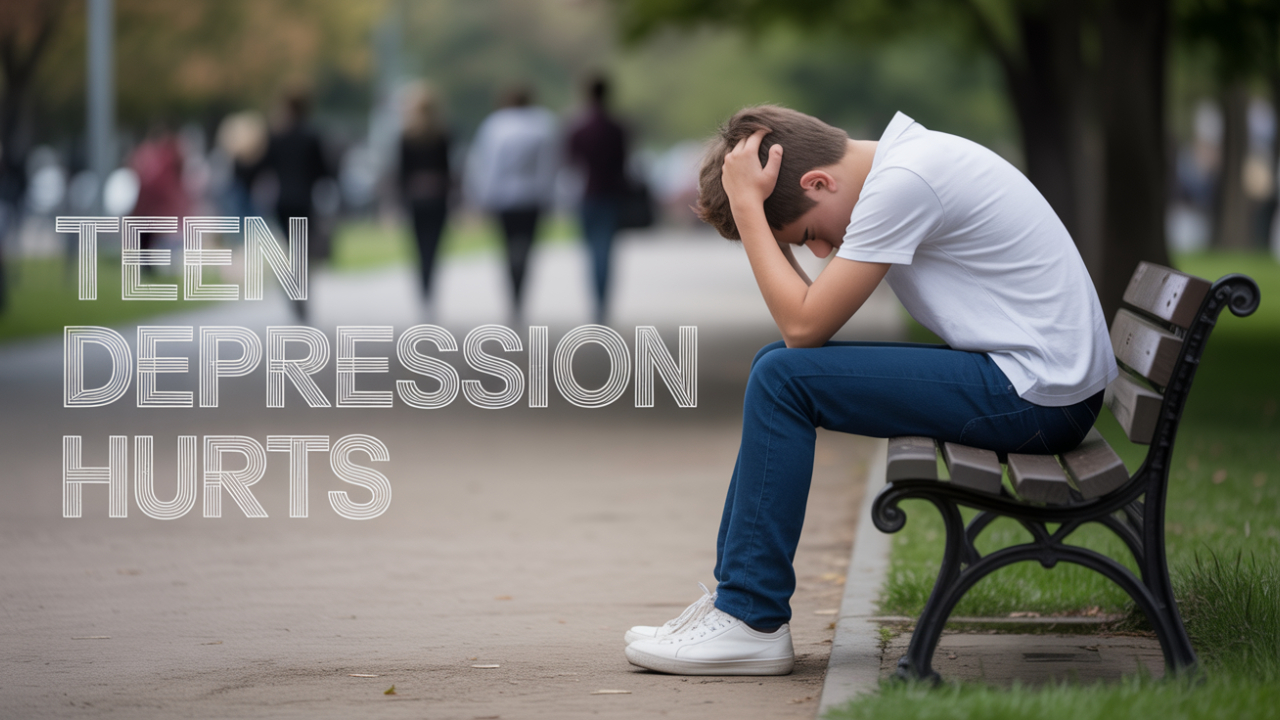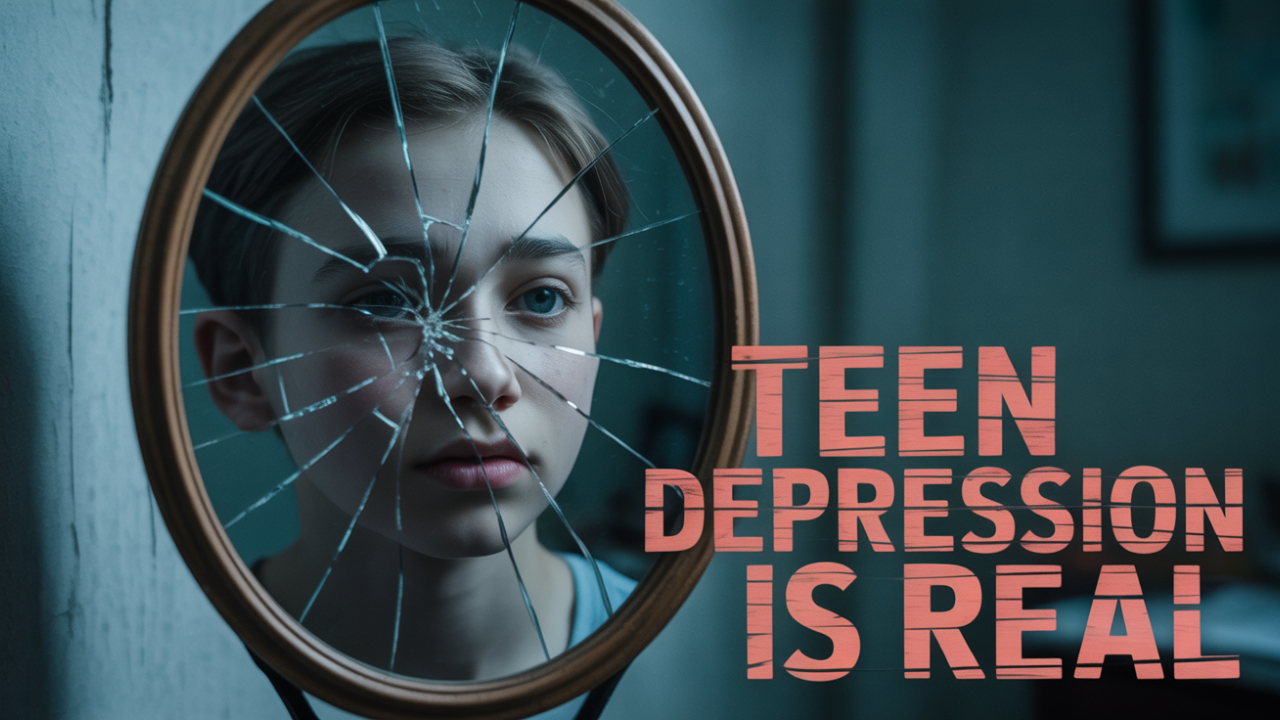Effective Strategies: How to Help a Teen with Depression
Teen depression is a serious mental health condition that affects behavior, mood, and daily functioning. Many teens experience overwhelming stress, anxiety, guilt, and fear during depressive episodes. At Adolescent Mental Health in Orange County, we help families understand the signs, risks, and treatments that can improve a teen’s health and restore hope.
This guide explains effective strategies to help a teen struggling with depression. Your understanding, support, and encouragement can make a meaningful difference.
Understand Teen Depression
Depression is more than a passing feeling of sadness. It is a diagnosable mental health disorder that changes the brain’s function and impacts both the body and mind. Research, including systematic reviews by the American Psychiatric Association and the American Academy of Pediatrics, shows that early evaluation and mental health treatment improve outcomes.
Factors that increase risk include early childhood trauma, childhood trauma, neglect, violence, substance abuse, and comorbidity with other conditions like anxiety disorder, seasonal affective disorder, or personality disorder. Teens may also struggle with dysthymia, a persistent low-grade depression, or mania in bipolar disorder.
Recognizing depression as a medical condition helps families seek the right health care provider or clinic for support.

Recognize the Signs of Depression
Teens with depression may show many signs:
Persistent sadness, grief, or shame
Anger, aggression, or withdrawal
Changes in sleep, appetite, or weight
Fatigue, low energy, or headache and pain without clear cause
Loss of attention at school and skipping homework or exam preparation
Thoughts of self-harm or suicidal ideation
Increased screen time, social isolation, and disinterest in hobbies like art or music
Feelings of happiness and happiness replaced by guilt and pressure
If these symptoms last more than two weeks, consult a physician, therapist, or other health professional for help.
Start an Open Conversation
Talking to your teen in a direct, caring way is key. As a caregiver, your empathy and willingness to listen show that you care.
Tips for effective conversation:
Choose a quiet space to talk.
Ask open-ended questions about their lifestyle, feelings, and habits.
Avoid dismissive comments like, “It’s just in your mind.”
Offer information about mental health treatment and options like dialectical behavior therapy, meditation, or art therapy.
Reassure them that depression is treatable and that they are not alone.
Encourage Professional Help
A health care team can guide treatment. Evidence-based therapies include:
Dialectical Behavior Therapy (DBT)
Family and group therapy
Medication such as antidepressant medicines like fluoxetine, escitalopram, or a selective serotonin reuptake inhibitor (SSRI)
The right dose and monitoring by a health care provider are essential. If your teen is pregnant or concerned about pregnancy, discuss risks with a physician, as hormone changes can affect mental health.

Promote Healthy Lifestyle Changes
Healthy habits improve weight management, mood, and energy. Encourage:
A healthy diet instead of junk food
Regular exercise to prevent weight gain, lower diabetes risk, and reduce cancer risk factors
Good sleep hygiene to avoid insomnia
Limiting screen time
Practicing meditation or creative outlets like music and art
Lifestyle changes cannot replace treatment but help improve happiness and emotional resilience.
Watch for Warning Signs of Crisis
If your teen talks about suicide, has a suicidal ideation, or engages in self-harm, seek help immediately. Call the Suicide & Crisis Lifeline (988) for suicide prevention, or go to an emergency room. Never leave a teen alone during a crisis.
Keep community resources, pdf guides, and emergency contacts handy. Early intervention saves lives.
Be Patient and Consistent
Recovery takes time. Encourage your teen to stick to their medicine, therapy, and healthy lifestyle choices. Celebrate small progress and continue to offer hope, understanding, and love as they work toward healing.
How We Can Help
At Adolescent Mental Health, our programs in Orange County focus on teens. Our team of therapists, psychologists, and physicians provides personalized care in a supportive community setting. We use evidence-based treatments informed by psychology and medicine to help teens overcome depression and find happiness again.
If you are concerned about your teen, contact us today to schedule an evaluation or learn more about our services.
Frequently Asked Questions
1. How can I tell if my teen’s sadness is depression or just a phase?
It’s normal for teens to experience mood swings and occasional sadness. However, depression is more intense and long-lasting. If your teen shows signs like persistent sadness, withdrawal, changes in sleep, appetite, or behavior, or talks about feeling worthless or hopeless for more than two weeks, it may be depression. A professional evaluation by a health care provider or mental health professional can help determine the best next steps.
2. What is the best type of treatment for teen depression?
Treatment depends on your teen’s specific needs, but most benefit from a combination of therapy and, in some cases, medication. Evidence-based therapies like cognitive behavioral therapy (CBT) and dialectical behavior therapy (DBT) help teens develop coping skills and healthier thought patterns. Antidepressants, such as fluoxetine or escitalopram, may be recommended by a physician if symptoms are severe. Lifestyle changes, like improving sleep, diet, and reducing screen time, also play an important role.
3. Should I talk to my teen about suicide if I’m worried?
Yes. Talking about suicide does not put the idea into your teen’s head—it shows you care and are paying attention. If your teen expresses suicidal ideation or talks about self-harm, take it seriously. Ask direct, calm questions and let them know help is available. Call 988 or contact a mental health professional right away if your teen is in immediate danger.
4. Can depression in teens go away without treatment?
In some cases, mild symptoms may improve over time. However, untreated depression can persist, worsen, and increase the risk of serious problems like substance abuse, anxiety disorders, personality disorders, or suicide. Early intervention and mental health treatment improve outcomes and help teens recover sooner. Support from family, health care providers, and the community makes a big difference in their recovery.









